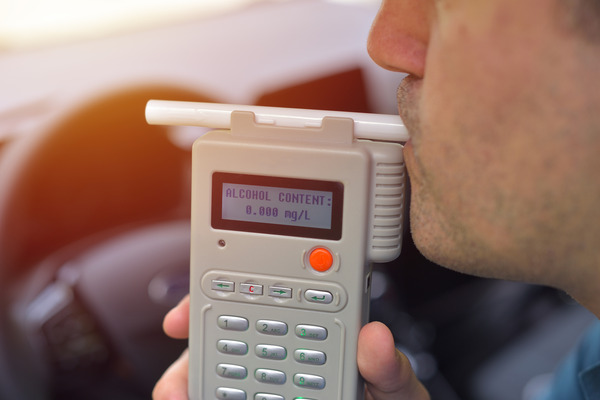Most people are aware that alcohol affects everyone differently. We all have that friend who brags they can “drink anyone under the table,” and they are right. They seem to be able to consume drink after drink without becoming sloppy drunk, while another friend has two drinks and is stumbling for the door.
While this is certainly an example, it is not the rule. People behave in a general way depending on their level of intoxication, giving law enforcement and medical professionals a good idea of just how drunk someone may be. Here are the levels of intoxication, beginning with the level at which it is illegal to drive and how a typical person may behave.
If you were arrested for drinking and driving, call our Pennsylvania DUI lawyers at (212) 285-2100 to schedule a free consultation.
| 0.08 – 0.09 BAC
The person is slightly impaired. They may have some difficulty maintaining their balance, their reaction time is slowed, and their vision and speech are no longer typical. Most people believe at this point that they are not as intoxicated as they actually are. |
| 0.10 – 0.125 BAC
At this level, a person begins to lose their good judgment. They may make decisions that they would not make if they were sober. There is a significant impairment in speech, reaction time, balance, hearing, and vision. |
| 0.13 – 0.15 BAC
There is now a lack of physical control. Euphoria and joy is slowly replaced by anxiety and a feeling of restlessness. |
| 0.16 – 0.19 BAC
At this level of intoxication, a person begins to appear as what we call “sloppy” or “fall down” drunk. A person may begin to feel sick to their stomach. |
| 0.20 BAC
A person has reached double the legal driving limit. They may need help moving from place to place safely, and if they happen to be injured, they probably won’t feel it. A person could become physically ill at this point, which is dangerous. The gag reflex is impaired now, so vomiting can cause a person to choke. A person who is this drunk should not be permitted to sleep on their back. |
| 0.25 BAC
There is an increased risk of being injured due to an accident. There is also an increased risk of choking on vomit. |
| 0.30 BAC
When a person is this intoxicated, they could pass out suddenly. They may also be difficult to wake up should they pass out. This person will have little awareness of where they are. |
| 0.35 BAC
At this level, intoxication is similar to surgical anesthesia. A person could easily slip into a coma. |
| 0.40 BAC
This level of intoxication is potentially fatal. |
What factors affect BAC?
Blood alcohol concentration (BAC) can be influenced by various factors, each affecting how quickly alcohol is absorbed and metabolized and, ultimately, how it impacts the body. Here are some key factors.
| Type and amount of alcohol
The more alcohol consumed, the higher the BAC. Different types of alcoholic beverages are absorbed at different rates. |
| Rate of alcohol consumption
Drinking alcohol more quickly will raise BAC faster, as the body can only metabolize alcohol at a steady rate, typically about one standard drink per hour. |
| Body weight and composition
Generally, people who weigh more will have a lower BAC after consuming the same amount of alcohol as someone who weighs less. Individuals with more muscle mass also tend to have a lower BAC than those with more fat, as body fat does not absorb alcohol well. |
| Sex
Women often have higher BACs than men after consuming the same amount of alcohol due to generally having less water in their bodies, higher body fat percentages, and different levels of alcohol-dehydrogenase, an enzyme involved in metabolizing alcohol. |
| Food intake
Food in the stomach acts as a barrier, delaying alcohol from reaching the small intestine, where alcohol absorption is fastest. |
| Hydration level
Being dehydrated can increase BAC, while being well-hydrated can dilute alcohol concentration in the bloodstream, potentially lowering BAC. |
| Metabolic rate
Individuals with a faster metabolism can process alcohol more quickly, reducing BAC over a shorter period. Metabolic rates can vary due to genetics, overall health, and other factors. |
| Medication and drugs
Certain medications and drugs can interact with alcohol metabolism, potentially increasing the effects of alcohol and hence its concentration in the blood. |
| Age
As people age, changes in body composition, metabolism, and organ function can affect how alcohol is processed, often resulting in higher BACs and prolonged effects of alcohol. |
| Emotional state
Stress and other emotional states can influence how the body processes alcohol, potentially affecting the rate of alcohol absorption and metabolism. |
What is considered a legally impaired blood alcohol percentage?
Though 0.08 is the legal limit, meaning you will automatically get a DUI if your BAC is this high, it does not mean you can’t get a DUI with a lower BAC as well. If an officer believes that the alcohol in your system, however much it is, caused you to drive dangerously, you could face charges.
| Resource: |
Arrested for DUI? Call us.
If you have been arrested for driving under the influence in Pennsylvania, our team is here to assist you. Contact us today to schedule a free case evaluation. We will review your arrest and advise you of your legal options. Don’t assume you have no legal defense, even if you submitted to chemical testing. We have the experience you need on your side.
